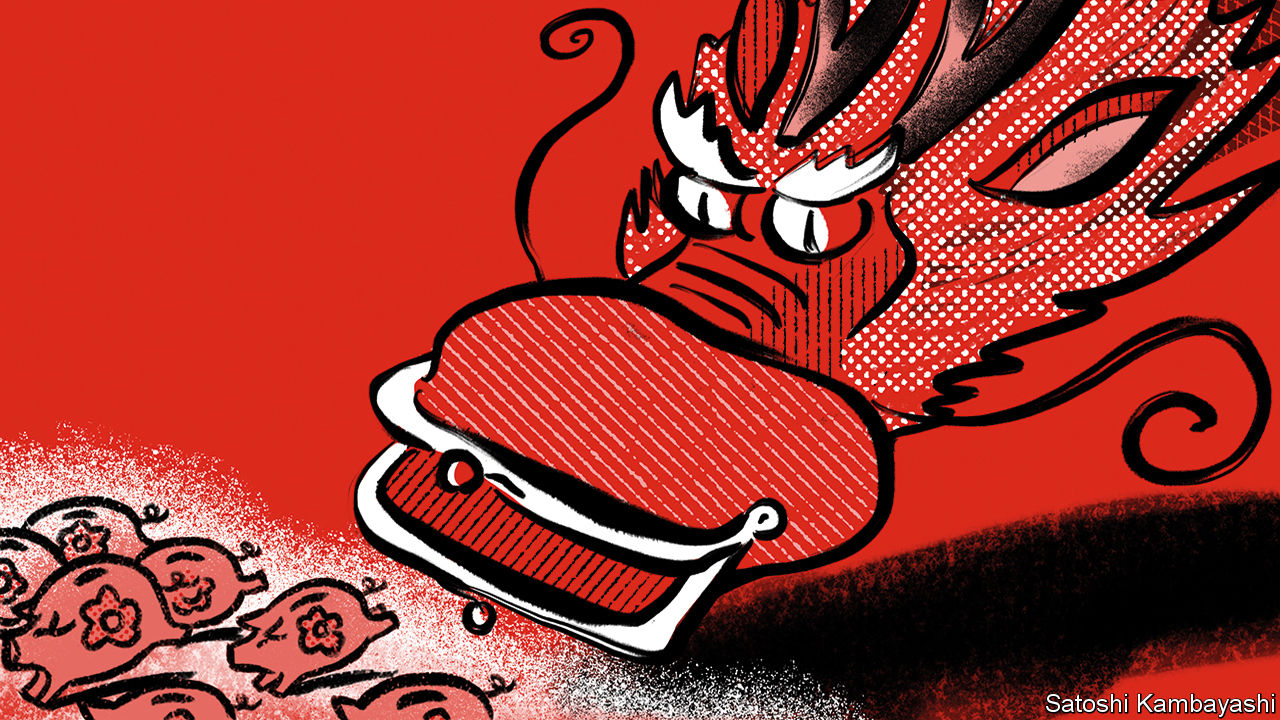The government wants to raise that to 15%


I’m not an idiot,” says Liu Yongli, a chauffeur in Beijing, when asked whether he has ever paid personal income tax. Despite earning well above the tax-free threshold, Mr Liu (not his real name) breezily explains that he has never faced any consequences for tax-dodging. Cavalier views like his may help explain why personal income tax accounted for only 8% of total tax revenue in China last year, compared with an average of 24% in the oecd, a group of rich countries.
The finance ministry estimates that 187m people ought to be paying income tax. Yet a former finance official reckons that in 2015 only 28m people—just 2% of the population—did so. In theory, the income-tax reform on which the authorities are embarking, which the People’s Daily, the Communist Party’s main mouthpiece, is calling the most significant in the country’s history, is about narrowing the tax base, not widening it. The threshold at which tax becomes payable was raised from 3,500 yuan ($503) to 5,000 yuan a month on October 1st. The finance ministry says the number of people liable for income tax should fall to 64m as a result. But it also seems determined to make those who owe tax actually pay it—a change that could have dramatic implications for politics.
A revamp of the income-tax system has been in the works for several years. A tax-evasion scandal this summer involving Fan Bingbing, China’s most famous actress, who was exposed by a whistleblower for having ducked nearly 300m yuan in taxes, may have added urgency to the task. (Ms Fan was eventually fined 884m yuan.)
Fanning the flames
Public interest is enormous. A state-sponsored “consultation exercise” on the reform in July attracted over 130,000 comments. That is around 100 times the average for such exercises, which the national parliament is legally required to conduct before approving new laws.
Salaried professionals in big cities have long complained that they bear an unreasonable share of the tax burden. That is because firms are legally required to withhold a portion of salaries in taxes. The rich, whose income usually does not come in the form of a pay cheque, and those in the informal economy, like Mr Liu, find it comparatively easy to evade the taxman. Even salary-earners can evade tax by arranging to receive most of their pay under the table, in cash, keeping their declared earnings below the level at which income tax starts being levied. Employers agree to this scam because it allows them to shirk on social-insurance contributions, which can be as high as 40% of a worker’s salary.
The finance ministry reckons that a worker on a monthly salary of 15,000 yuan is enjoying savings of around 1,000 yuan a month as a result of raising the tax-free threshold. Special deductions that come into force in January for education, care for the elderly and rent, among other expenses, will further boost tax savings. A spokesman for the ministry says the reform will result in 320bn yuan in lost revenue, about a quarter of what the government currently collects in income tax.
But the reforms also include rules that aim to make it harder for companies to avoid social-insurance contributions by paying workers under the table. Those who make more than 60,000 yuan a year will be required to file annual tax returns, starting next year. Preferential tax treatment for annual bonuses may end, notes Freeman Bu of Ernst & Young, an accounting firm. There will be more audits and investigations, predicts Ellen Tong of Deloitte, another accounting firm. Expatriates, who had previously found it easy to avoid being taxed on their worldwide income, will face closer scrutiny. The anti-tax-avoidance provisions in the new law are likely to convince many to “reconsider”, says Grace Lin of Cuatrecasas, a law firm.
Mr Liu, the chauffeur, intends to call the government’s bluff. He believes that most people will not file taxes despite the new regulation. Everyone knows “there is an equilibrium of cheating”, he says: workers skimp on taxes because they do not trust the government will spend their money wisely. Mr Liu cites the Belt and Road Initiative, a global infrastructure-building project, as an indefensible giveaway to poor countries. The government, he explains, has enough “self-awareness” to recognise that turning a blind eye to tax shirkers is in its political self-interest.
But China has run a budget deficit in 21 of the past 22 years. Last year the deficit breached the government’s self-imposed cap of 3% of gdp. Public debt stands at around 50% of gdp. Although none of these figures is alarming, especially by the standards of the rich world, the economy’s slowing growth will eventually make the government’s debts harder to control.
No wonder, then, that officials are keen to boost revenues. Authoritarian regimes typically prefer indirect levies such as consumption taxes, not least because these are less likely to arouse resentment than income tax. If the government manages to expand the ranks of taxpayers, it may feel pressure to provide more detail on how their money is spent, and perhaps even a say in its use. As Bruce Gilley of Portland State University points out in a recent paper, resentment against a tax on salt under the Nationalist government helped to propel the Communist Party to power.
No comments:
Post a Comment
Note: Only a member of this blog may post a comment.